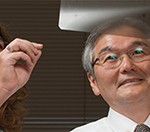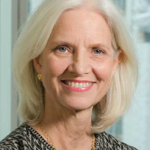This April, two of immunology’s premier investigators joined the prestigious ranks of the National Academy of Sciences (NAS). What’s remarkable about this year’s newly elected immunologists is that both are also rheumatologists. Michael B. Brenner, MD, Theodore B. Bayles professor of medicine at Harvard Medical School and chief of rheumatology, immunology, and allergy at Brigham and Women’s Hospital in Boston, and Wayne M. Yokoyama, MD, investigator at the Howard Hughes Medical Institute and Sam and Audrey Loew Levin professor of medicine, professor of pathology and immunology, and chief of rheumatology at Washington University School of Medicine in St. Louis, Mo., thus join other notable rheumatologists (see “Other NAS Rheumatologists,” below).
Election to the NAS is considered one of the highest honors accorded a scientist. The multi-stage election process begins with nomination of a scientist by an NAS member, with the NAS Council determining the number of members that can be elected each year from each of six classes (from physical and mathematical sciences to biomedical sciences) that represent all of science. Class IV, the Biomedical Sciences, comprises sections for immunology, medical genetics, hematology, and oncology; medical physiology and metabolism; and microbial biology.1 Although the NAS keeps no data on percentages of elected members by specialty, it appears that rheumatology has a healthy representation, despite the small size of the subspecialty.
The Most Fundamental Experience in Science
Although they were recognized for different discoveries in immunological research, the two investigators share common threads in their scientific development. Drs. Brenner and Yokoyama were both drawn to laboratory research following clinical fellowships; acquired extensive post-doctorate training in fundamental techniques of molecular biology and biochemistry; and were unafraid to take risks in their investigatory career paths.
Other NAS Rheumatologists
- K. Frank Austen, MD, director of the inflammation and allergic diseases research section, Brigham and Women’s Hospital in Boston
- Dennis A. Carson, MD, professor of medicine at the University of California, San Diego
- Anthony Fauci, MD, director of the National Institute of Allergy and Infectious Diseases
- Douglas T. Fearon, MD, PhD, professor of immunology at the University of Cambridge (U.K.)
- Laurie H. Glimcher, MD, professor of medicine and immunology at Harvard
- Hugh O. McDevitt, MD, professor of medicine (immunology and rheumatology), Stanford University (Calif.)
- Arthur Weiss, MD, PhD, chief of rheumatology at the University of California, San Francisco
- James B. Wyngaarden, MD, professor of medicine emeritus at Duke University in Durham, N.C. and former director of the National Institutes of Health
While a rheumatology fellow at the University of California, Los Angeles (UCLA), Dr. Brenner became fascinated by the fact that “immunological mechanisms produced such a vast array of devastating pathology.” To understand these mechanisms, he chose to do post-doctoral work in the laboratory of David Yu, MD, professor of medicine (rheumatology) at UCLA. Following that, he decided to take a hiatus from clinical medicine, and moved to Harvard to work with the famed biochemist Jack Strominger, MD, Higgins professor of biochemistry, who did much of the pioneering work on the major histocompatibility complex (MHC). Dr. Brenner recalls that he was the only MD in the Strominger lab at the time. “Many of his other trainees were wonderful scientists who taught me an approach to addressing significant questions in the field rather than conducting incremental analyses.” Immersing himself in the fundamentals of basic science, Dr. Brenner was able to define his own style of research, which was to take on problems that were technically challenging and highly risky.

